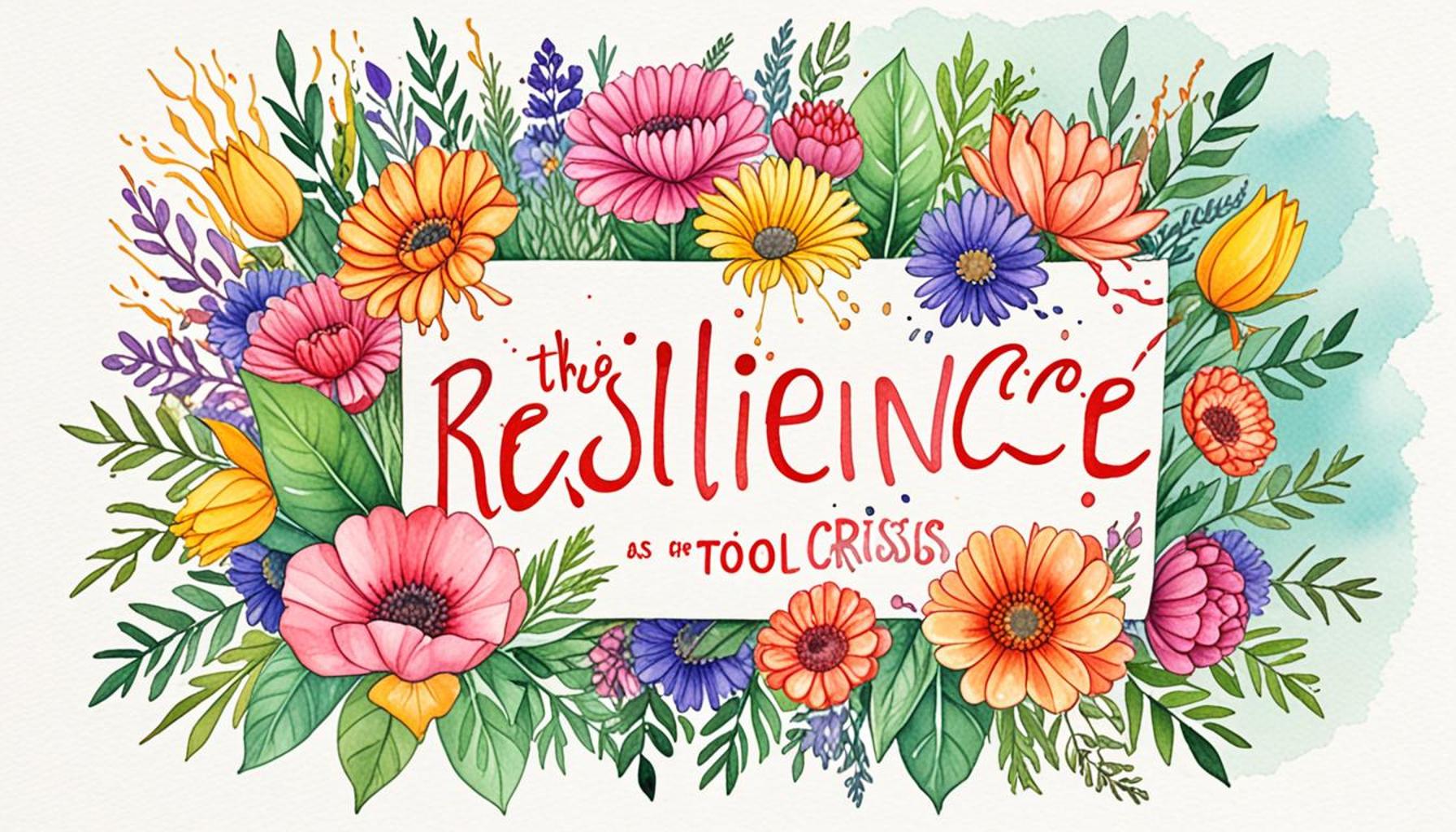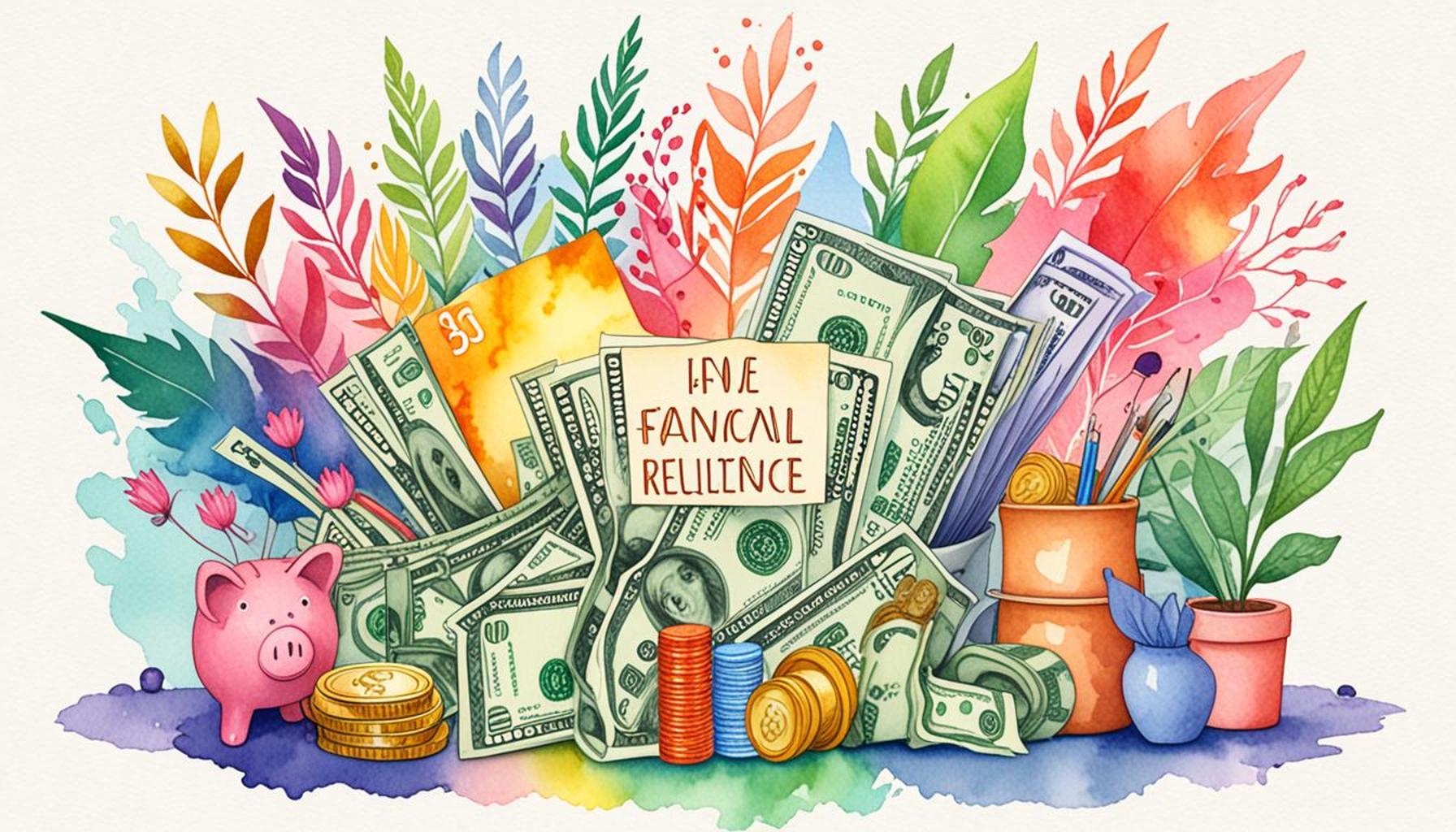Resilience as a Tool for Personal Growth: The Impact of Daily Affirmations in Times of Crisis

The Power of Daily Affirmations
Participating in a daily affirmation practice can be transformative, particularly in high-stress environments like Nigeria, where individuals face multifaceted challenges, including economic instability, political strife, and social unrest. The use of daily affirmations not only helps individuals maintain a positive outlook but also fosters a sense of community and shared resilience among those who engage in this practice.
Understanding Resilience in Context
Resilience refers to the ability to recover quickly from difficulties. In Nigeria, resilience takes on a unique form, as individuals and communities often have to navigate significant challenges. Whether facing unemployment, infrastructural decay, or societal tensions, the act of cultivating resilience is essential for survival and thriving. Daily affirmations are a mental strategy to reinforce a positive self-image and boost morale amid adversity.
Methods and Benefits of Daily Affirmations
Integrating affirmations into daily routines can be done in various creative ways. For instance, individuals can write their affirmations on sticky notes and place them on mirrors or the refrigerator, or even share their affirmations on social media platforms like Instagram or Twitter. This not only personalizes the experience but also invites interaction with friends and family, fostering a supportive environment. Some benefits of adopting daily affirmations include:
- Reframe negative thoughts: By consciously challenging and redirecting negative thoughts, individuals can focus on positive, actionable insights. For example, instead of thinking, “I’m overwhelmed,” one could affirm, “I am capable of overcoming challenges.” This shift in perspective can create a sense of empowerment and control.
- Build self-confidence: Frequent use of affirmations, such as “I deserve success” or “I am worthy of happiness,” conditions the mind to embrace self-worth. This can be particularly valuable for marginalized groups, helping them to assert their identities and ambitions in a landscape that may often undermine their potential.
- Enhance emotional stability: Affirmations can serve as grounding reminders during turbulent periods. For instance, during the economic downturn caused by the pandemic, a simple affirmation like, “Each day brings new opportunities,” can inspire individuals to seek growth and innovation, rather than succumb to despair.
Cultivating Community Resilience
The beauty of daily affirmations lies not only in personal transformation but also in its potential to cultivate community resilience. In Nigeria, community organizations and youth groups can facilitate affirmation circles where participants uplift each other’s spirits through collective affirmations. Such gatherings create an atmosphere of hope and encouragement, fostering a stronger community bond in times of strife.
In conclusion, the journey toward resilience through daily affirmations not only empowers individuals but can ripple through communities, creating a more robust social fabric. By embracing this powerful practice, Nigerians and people worldwide can transform their challenges into opportunities for growth, ultimately reshaping their paths to success. Moving forward, let us explore the rich stories of those whose lives have been positively impacted by this method, further affirming the profound effects of resilience.
LEARN MORE: This related article may interest you
Methods and Benefits of Daily Affirmations
Integrating affirmations into daily routines can be done in various creative ways. For instance, individuals can write their affirmations on sticky notes and place them on mirrors or the refrigerator, or even share their affirmations on social media platforms like Instagram or Twitter. This not only personalizes the experience but also invites interaction with friends and family, fostering a supportive environment. Some benefits of adopting daily affirmations include:
- Reframe negative thoughts: By consciously challenging and redirecting negative thoughts, individuals can focus on positive, actionable insights. For example, instead of thinking, “I’m overwhelmed,” one could affirm, “I am capable of overcoming challenges.” This shift in perspective can create a sense of empowerment and control, essential for navigating crises in contexts like Nigeria, where individuals face high levels of uncertainty.
- Build self-confidence: Frequent use of affirmations, such as “I deserve success” or “I am worthy of happiness,” conditions the mind to embrace self-worth. This can be particularly valuable for marginalized groups, helping them to assert their identities and ambitions in a landscape that may often undermine their potential. In a society grappling with intricate social dynamics, fostering self-esteem is crucial for individual and communal growth.
- Enhance emotional stability: Affirmations can serve as grounding reminders during turbulent periods. For instance, during the economic downturn caused by the pandemic, a simple affirmation like “Each day brings new opportunities” can inspire individuals to seek growth and innovation, rather than succumb to despair. This can be particularly relevant in Nigeria, where economic challenges necessitate resilience and adaptability.
The Science Behind Affirmations
Research supports the concept that daily affirmations can have significant psychological benefits. Studies have shown that positive self-affirmations can lead to improved problem-solving abilities, particularly in stressful situations. This science explains why many individuals in Nigeria—including students, professionals, and even entrepreneurs—benefit from a structured approach to affirming their capabilities. By shifting focus from adversity to strength, affirmations can actively reshape mindsets, yielding not just better mental health but also fostering the drive to pursue goals despite daunting odds.
Moreover, the neurological intricacies involved in positive affirmations point to their ability to light up reward centers in the brain, reinforcing the notion that individuals are capable of change and growth. By consistently engaging in affirmations, one builds a neural pathway that enhances overall well-being—a critical aspect of personal growth, especially in times of crisis.
Cultivating Community Resilience
The beauty of daily affirmations lies not only in personal transformation but also in its potential to cultivate community resilience. In Nigeria, community organizations and youth groups can facilitate affirmation circles where participants uplift each other’s spirits through collective affirmations. Such gatherings create an atmosphere of hope and encouragement, fostering a stronger community bond in times of strife.
In conclusion, the journey toward resilience through daily affirmations not only empowers individuals but can ripple through communities, creating a more robust social fabric. By embracing this powerful practice, Nigerians and people worldwide can transform their challenges into opportunities for growth, ultimately reshaping their paths to success. Moving forward, let us explore the rich stories of those whose lives have been positively impacted by this method, further affirming the profound effects of resilience.
Exploring the Transformative Power of Daily Affirmations
Daily affirmations serve as a powerful mechanism in fostering resilience and enhancing personal growth, particularly during challenging times. These affirmations, which are positive statements that individuals repeat to themselves, can significantly influence thoughts, behaviors, and ultimately, outcomes. By affirming one’s strengths and capabilities, individuals can reframe negative thought patterns, cultivating a mindset that embraces adaptability and growth.In periods of crisis, the repetitive nature of daily affirmations creates a mental safety net. For instance, an individual facing career uncertainty may frequently recite, “I am skilled and capable; opportunities will arise.” This practice not only uplifts the spirit but also reinforces the belief in one’s ability to navigate through adversities. Psychological studies have shown that such cognitive reframing can lessen anxiety and foster emotional intelligence, key elements in developing resilience.Beyond just providing comfort, daily affirmations can enhance focus on tangible goals. When individuals articulate their aspirations, like “I attract positive experiences,” they consciously shift their energy towards opportunities aligning with their desires. Integrating this practice into daily routines can lead to profound shifts in one’s perception of self and situation, promoting a proactive rather than reactive approach to life’s challenges.Moreover, the scientific backing for the efficacy of affirmations is compelling. Research indicates a clear relationship between positive self-affirmations and improved psychological well-being. When focusing on personal values and strengths, individuals are less likely to experience stress and depression. This correlation underscores the importance of embracing affirmations, not merely as words spoken, but as tools for tangible transformation.As we navigate through life’s unpredictable crises, utilizing daily affirmations can be a simple yet effective way to fortify resilience and inspire personal growth. By adopting this practice and integrating it into daily life, individuals can foster a mindset that not only survives struggles but thrives amidst them.
RECOMMENDED: Check out this similar article
Transformative Stories: Real-Life Impacts of Daily Affirmations
The power of daily affirmations is vividly illustrated through the transformative stories of individuals who have embraced this practice amidst personal and communal crises. In Nigeria, where challenges can seem overwhelming—from economic instability to social unrest—many have turned to affirmations as a lifeline during dark times. These lived experiences serve as compelling evidence of resilience as a tool for personal growth.
Take, for example, the story of Chika, a young entrepreneur from Lagos who faced a series of unfortunate events that threatened her clothing business during the pandemic. As sales plummeted and uncertainty loomed, Chika found solace in daily affirmations such as, “I can adapt and thrive in any situation.” By committing to this practice, she not only maintained her mental well-being but also inspired innovation within her business model. Instead of folding under pressure, she pivoted to online sales and implemented creative marketing strategies, which ultimately turned her situation around. Chika’s story exemplifies how consistent reinforcement through affirmations can lead to tangible results, showcasing adaptation as a merit of resilience.
Similarly, in northern Nigeria, Michael, a teacher and community leader, faced the emotional toll of insecurity that affected his students’ education. To uplift both himself and his students, Michael introduced a morning affirmation session in his classroom, utilizing statements like “We are stronger together” to foster a sense of unity and hope. These collective affirmations not only strengthened the emotional framework of the classroom but also allowed students to envision a brighter future—even amidst the discouraging realities they faced. This initiative illustrates how affirmational practices can build resilience not just individually, but community-wide.
The Role of Technology in Amplifying Affirmations
The rise of technology has played a pivotal role in enhancing the reach and effectiveness of daily affirmations. In Nigeria, where smartphone penetration continues to rise, various mobile applications and social media platforms have emerged to support individuals in their thriving journey through affirmations. Apps dedicated to mindfulness and motivation provide users with customizable reminders, encouraging them to cultivate a positive mindset daily.
Moreover, platforms such as Instagram have given rise to affirmational influencers who share motivational quotes and daily affirmations, thus creating a digital community focused on upliftment. The hashtag #BelieveInYourself has gained traction, inviting thousands to share their personal affirmations and stories of resilience, creating a sense of collective empowerment. This modern avenue not only normalizes the discussion around mental health but also highlights the importance of resilience in personal growth, inspiring more individuals to practice daily affirmations.
Challenges and Strategies for Sustaining Affirmation Practices
While the benefits of daily affirmations are vast, implementing them consistently can present challenges. Individuals may struggle with establishing a routine or become skeptical about their effectiveness. To counter these hurdles, it’s crucial to adopt practical strategies. Starting with short, simple affirmations can make the practice more accessible. Gradually, individuals can build on these, incorporating more complex affirmations as they grow more comfortable.
- Set a Specific Time: Designating a time, whether in the morning or before bed, can help solidify the habit, creating an anchor for the day.
- Visual Reminders: Keeping a journal or a vision board can serve as daily visual affirmations, constantly reminding individuals of their goals and aspirations.
- Engage in Group Sessions: Joining or creating affirmation groups can provide accountability and encouragement, making the journey toward resilience more collaborative.
In an ever-changing world marked by uncertainty and adversity, daily affirmations stand as a beacon of hope and a strategy for personal growth. As Nigerians continue to navigate their paths through crises, embracing resilience through the practice of affirmations can unlock potential, transforming not just individual lives but the very fabric of communities.
LEARN MORE: This related article may interest you
Conclusion
As we have explored throughout this article, resilience extends beyond mere endurance; it embodies the capacity to rise, adapt, and flourish despite adversity. Daily affirmations have emerged as a powerful tool in nurturing this resilience, particularly in tumultuous environments like Nigeria, where challenges often seem insurmountable. The stories shared illustrate that affirmations can inspire transformative action, enabling individuals like Chika and Michael to not only survive periods of crisis but to thrive creatively and collaboratively.
The role of technology in disseminating affirmational practices cannot be overstated. Digital platforms have created a vibrant community that fosters collective empowerment and opens avenues for personal growth. As the world becomes increasingly interconnected, this tech-savvy approach could very well be the key to unlocking the benefits of resilience for a greater number of people. By leveraging social media and mobile applications, individuals can find inspiration and support as they navigate their personal journeys through adversity.
Yet, for the effectiveness of these practices to sustain, commitment and strategy are essential. By adopting tailored approaches such as setting routines and utilizing visual reminders, one can embed resilience into daily life. As we look ahead, it is imperative to recognize that each person’s journey is unique; thus, embracing a personalized affirmation strategy can serve as a vital catalyst for personal growth amidst crises.
In conclusion, as the resilience movement gains momentum across Nigeria and beyond, we encourage everyone to explore daily affirmations as a practical and accessible means to enhance mental strength. The journey toward a more resilient self not only benefits the individual; it also paves the way for stronger communities capable of weathering life’s storms together.


